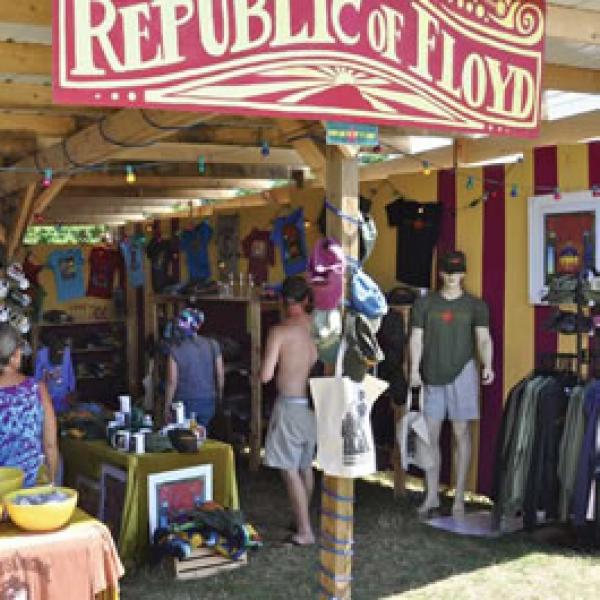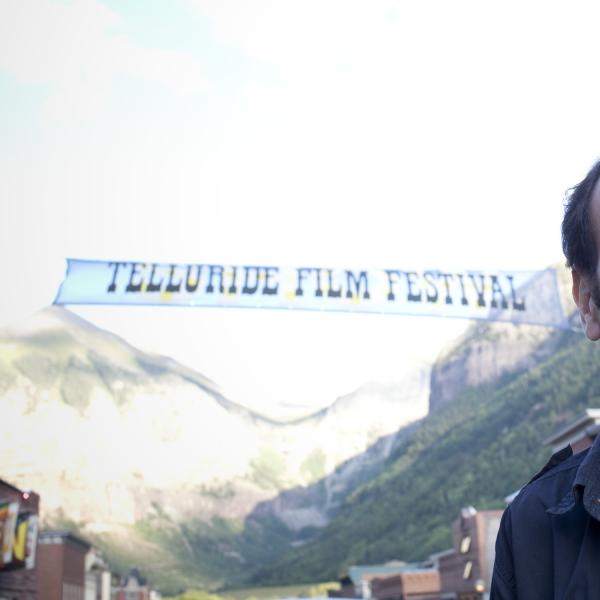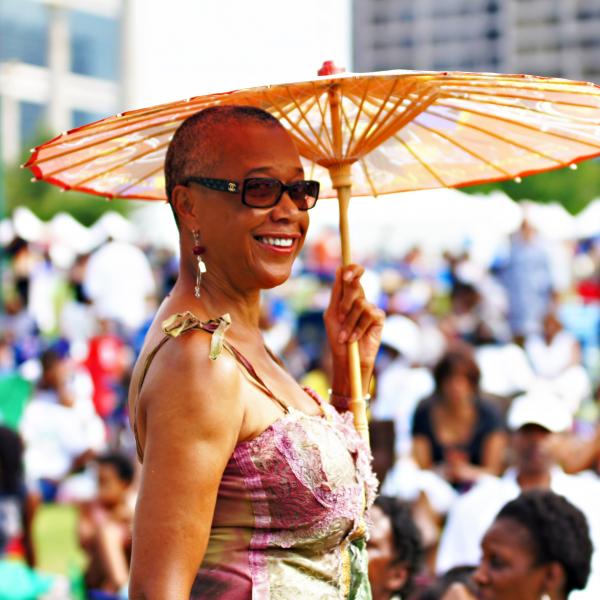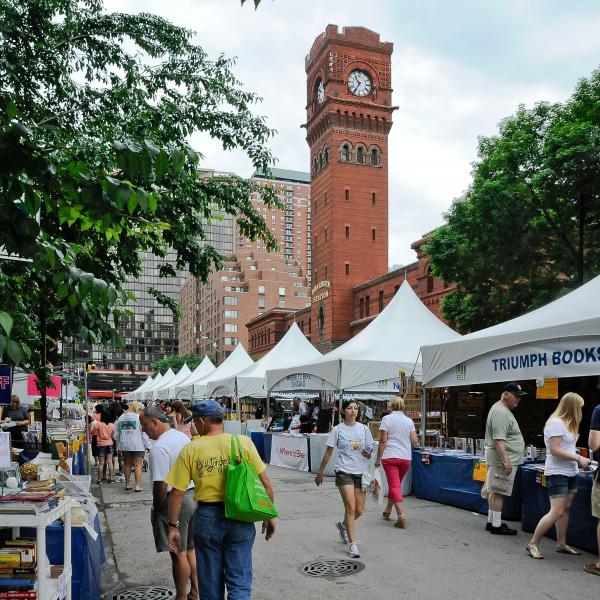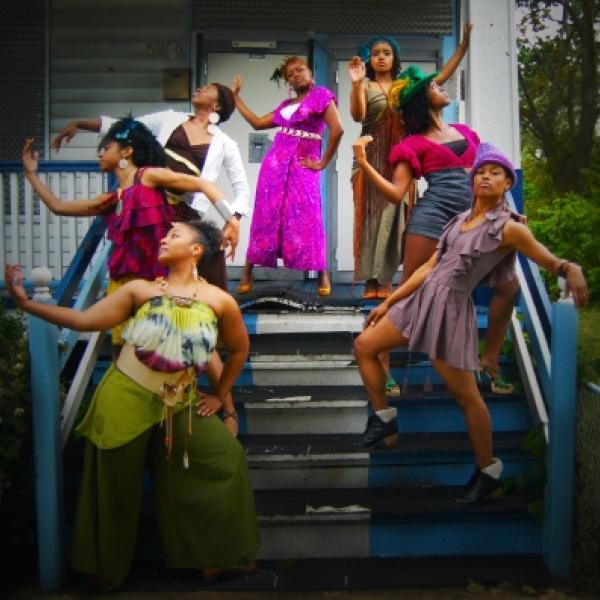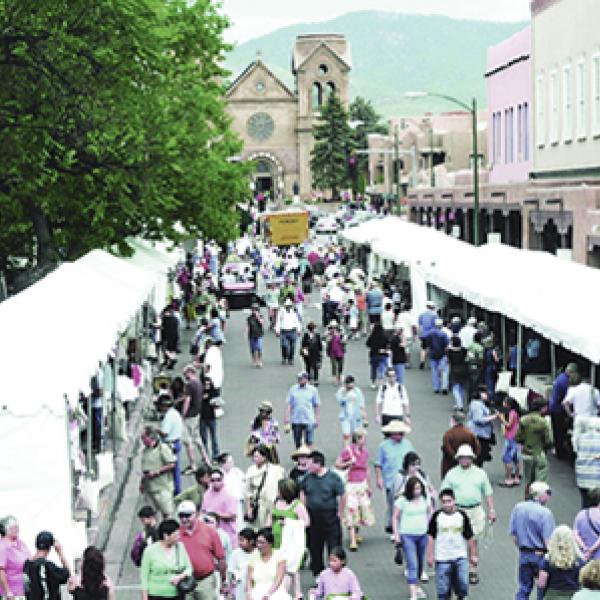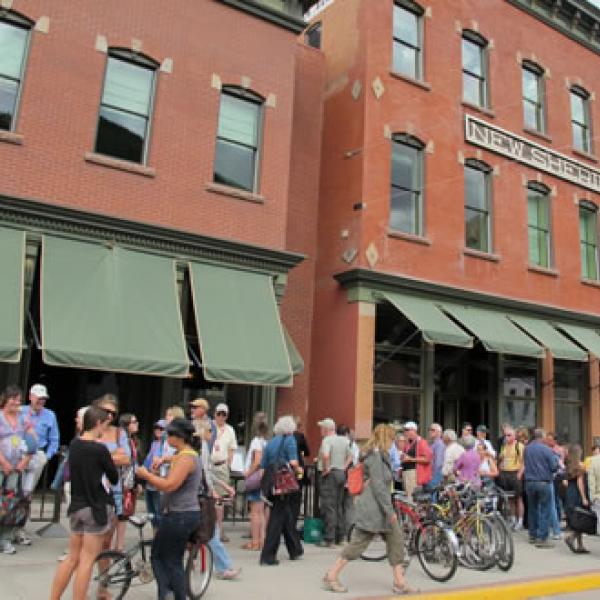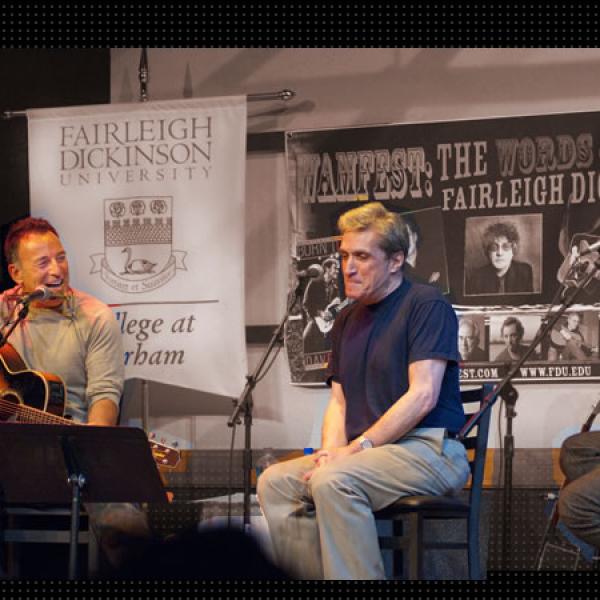The Community's the Thing
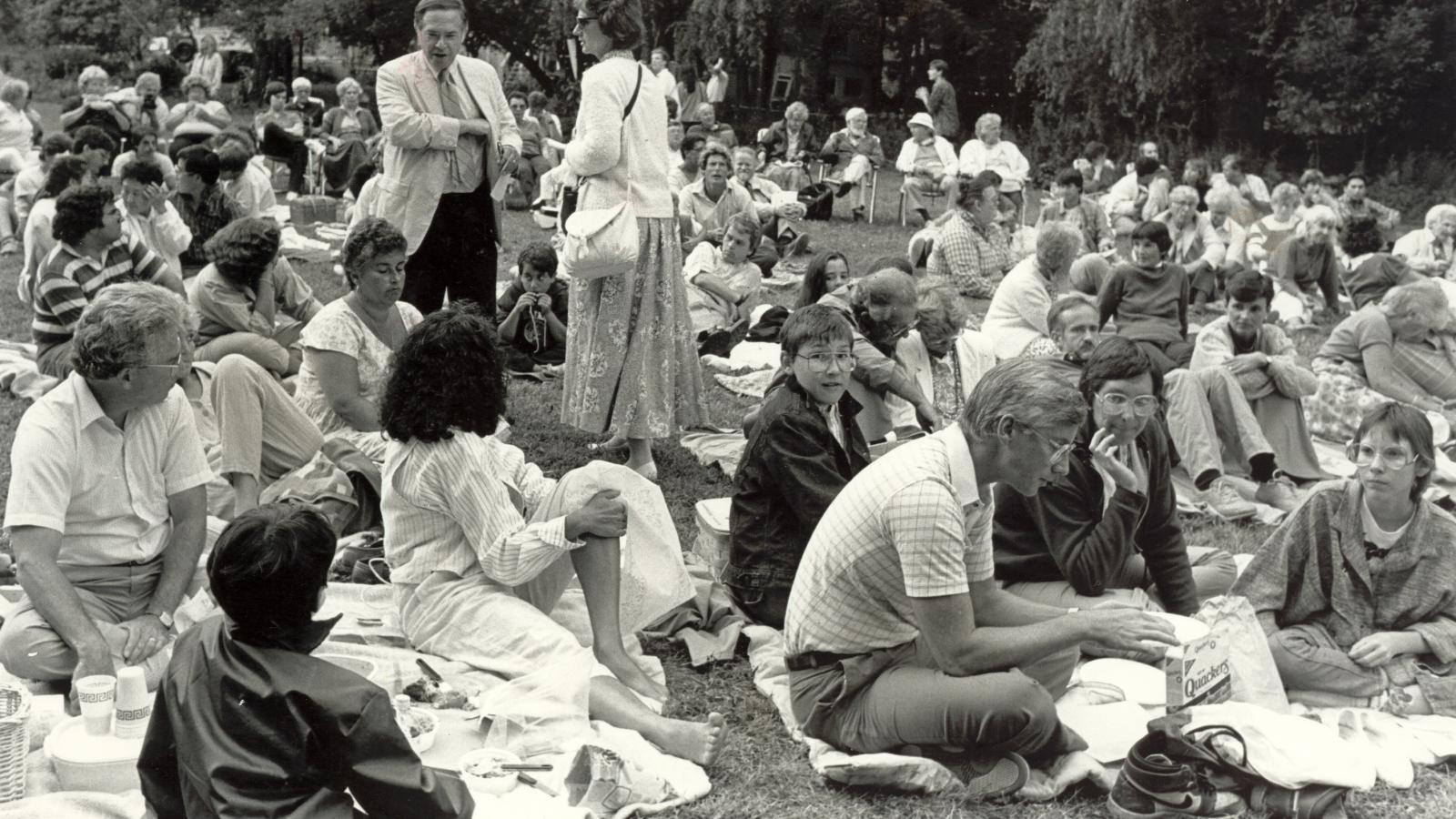
An audience at a free performance during the Williamstown Theatre Festival in 1987. Photo by Nina Krieger
In the summer of 1850, David Dudley Field, Jr., an attorney and homeowner in Western Massachusetts' Berkshire County, arranged a picnic for notable authors and a handful of Berkshire citizens atop Monument Mountain near Great Barrington. That luncheon was said to have sparked the friendship between Herman Melville and Nathaniel Hawthorne, and convinced Melville to move to the Berkshires, where he would write one of the great American novels, Moby-Dick. This interplay between the Berkshires' communities and its great artistic tradition continues today, and perhaps nowhere more palpably than within the summer festivals of four major residential theaters: Berkshire Theatre Festival (BTF), Williamstown Theatre Festival, Shakespeare and Company, and Barrington Stage Company (BSC).
By the local visitors bureau's estimate, 2.5 million tourists flock to this Western Massachusetts region annually -- the large majority during the summer -- and almost 60 percent of them attend performing arts productions. While the dance center Jacob's Pillow and the Boston Symphony Orchestra's retreat at Tanglewood have traditionally been a focal point for visitors, these four theaters' festivals, with their ambitious scheduling of dozens of plays, musicals, cabarets, children's fare, and touring shows from May to September, have become a large component of the region's cultural life. But beyond the appeal to the tourists, these festivals have enduring value to the 131,000 locals, whose communities are the major beneficiaries of their artistic, economic, and educational output. Barbara Allen, the Stockbridge Library archives curator, noted that, over the years, "The theaters became part of the community and the community became part of the theaters. And it fit in. Just as the writers fit in. It's that type of area."
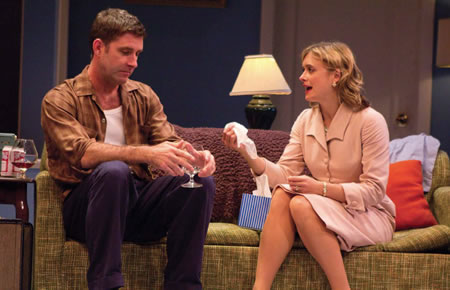
Paul Fitzgerald and Rebecca Brooksher in Berkshire Theatre Festival's 2011 production of Period of Adjustment by Tennessee Williams. Photo by Christy Wright |
While the spectrum of their offerings are wide, the underlying theme uniting the theaters is their integration into the communities. Rebecca Brooksher, an actress who's performed at both BSC and BTF, summarized the relationship: "The theaters, along with other cultural events in the area, are the community itself. I think it's why people choose the Berkshires over the Hamptons or Cape Cod. The community is made up of intelligent, cultured people. And it's the constant dialogue between the audience and the theaters that makes the area so exciting."
The region's economic vitality is a strong indicator of the theaters' import. Berkshire Creative, an organization that assists the creative sector, estimates that these theaters and the area's other major cultural institutions spend upwards of $40 million on goods and services within Berkshire County, provide thousands of jobs, bring in millions of dollars in federal grants, and are a boon to the county's hospitality industry. In an anecdotal nod to how the arts can revitalize an economy, Julianne Boyd, a former artistic director at BTF, noted, "The arts are truly leading the economy in Pittsfield. When we moved here, it was a ghost town. Fifty stores opened in the last two years on North Street here."
This past summer, despite fears of a double-dip in the depressed economy, three of the four theaters reported ticket sale increases from 2010, with BSC announcing the most successful season in its history, topping $1 million in individual ticket sales in addition to subscriptions and group sales. Meanwhile, Williamstown reported more than 40,000 audience members in 2011 from 44 states and various countries, contributing to a boost in hotel and restaurant business in the vicinity.
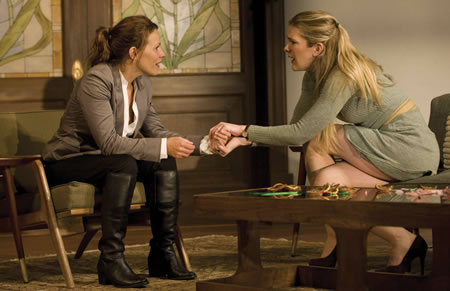
Lili Taylor and Lily Rabe in a scene from Henrik Ibsen's A Doll's House at Williamstown Theatre Festival in 2011. Photo by T. Charles Erickson |
All four theaters run educational outreach programs, and their footprint speaks to how vital the theaters are to these towns. For Shakespeare and Company, its education programs are essential to its mission. Based for 23 seasons at the Mount, Edith Wharton's Lenox estate, the company was in search of a new home and in 2001 moved to its current Kemble Street location. According to Tina Packer, founder of the organization, "the principal reason we stayed in the Berkshires is we'd built up relationships with the whole school system." For more than two decades, the company's heralded Fall Festival has brought teaching artists to 500 students across ten schools in the county before presenting shows to the public in the days before Thanksgiving.
A collaboration between Shakespeare and Company and the Berkshire Juvenile Court resulted in Shakespeare in the Courts, which teaches juvenile offenders to explore scenes from the Bard's canon and learn personal values from the texts. Initiated in part with funding from the National Endowment for the Arts, the program has been praised and awarded on both a state and federal level.
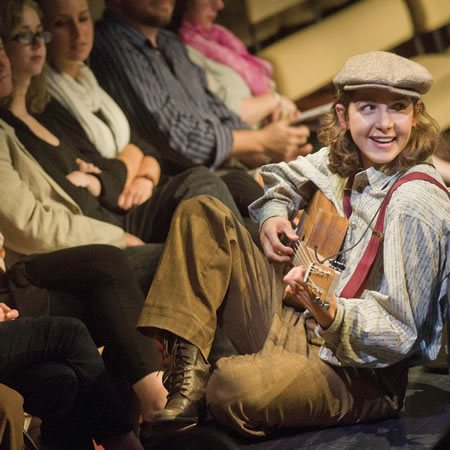
Merritt Janson as Rosalind in Shakespeare & Company's 2011 production of As You Like It. Photo by Kevin Sprague |
Then there is Williamstown's Greylock Theatre Project, based on New York's 52nd Street Project, which works with North Adams children in the Greylock and Brayton Hill neighborhoods on theater activities. The theaters all run some form of youth theater as well, and BTF operates school residencies and touring performances that reach thousands of students each year. Barrington Stage Company's playwright mentoring project, an intensive, six-month, out-of-school activity for at-risk youth, received a Coming Up Taller Award in 2007.
Barbara Allen, herself a resident for more than 30 years with two children as public school alumni, sees the theaters' education programs as crucial: "I will honestly say that with one of my daughters, Shakespeare and Company changed her life. All the credit in the world to S&Co's children's program."
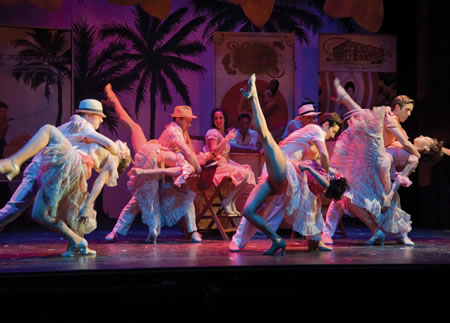
The 2011 Barrington Stage Company production of the classic musical Guys and Dolls. Photo by Kevin Sprague |
Even beyond the artistic and educational ancillary benefits, the theaters are entwined in residents' very lives. Allen placed the connection of the theaters and community in a historical context. "You have no idea how many of the 70-, 80-, 90-year-olds in town, you get them talking, and they'll say 'Oh yes, I was an extra in such-and-such a play, or they used my dog in this play.'" Just this past season, Barrington Stage Company used a local church's gospel choir as the final punctuation in its civil rights play The Best of Enemies.
Though the festivals last for only a few months, the theaters themselves remain significant throughout the year. As Melville, Hawthorne, and numerous other writers of the 19th century became part of the communities, so too have these theaters become an essential part of each town's fabric. Returning to the very reason she agreed to found a theater in the Berkshires, Packer said, "My question was can a theater affect the community it lives in, and the answer is yes, absolutely."


